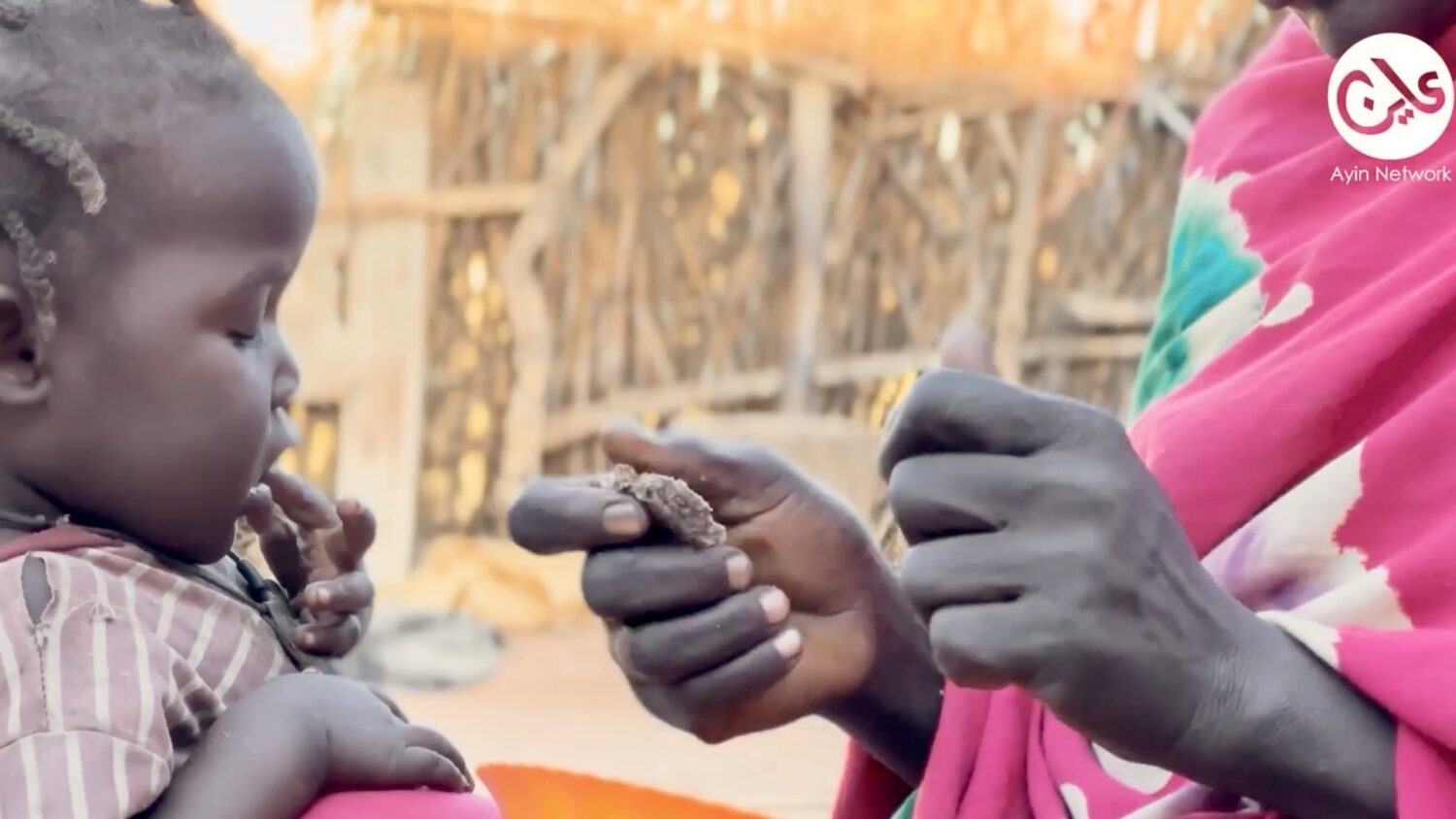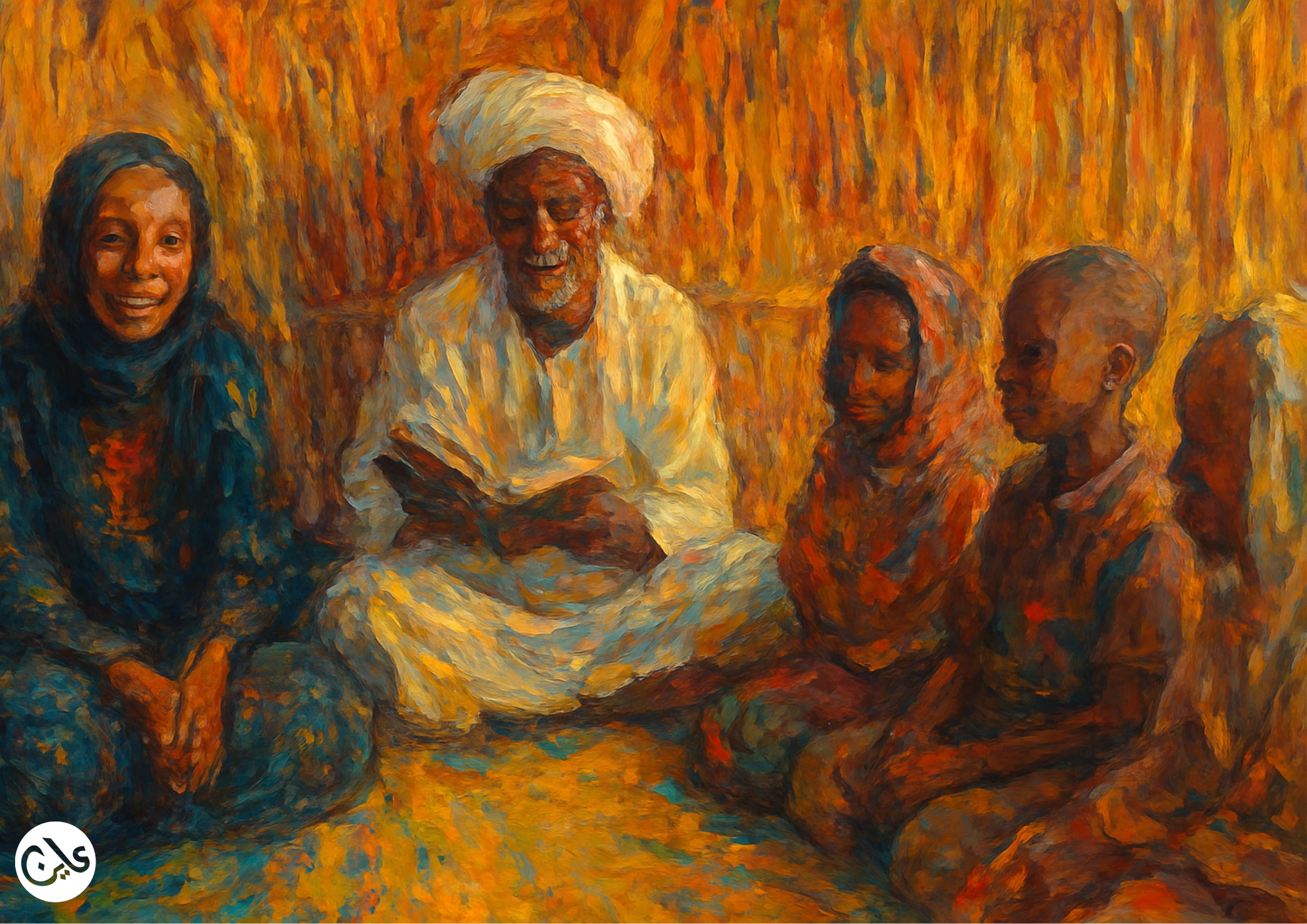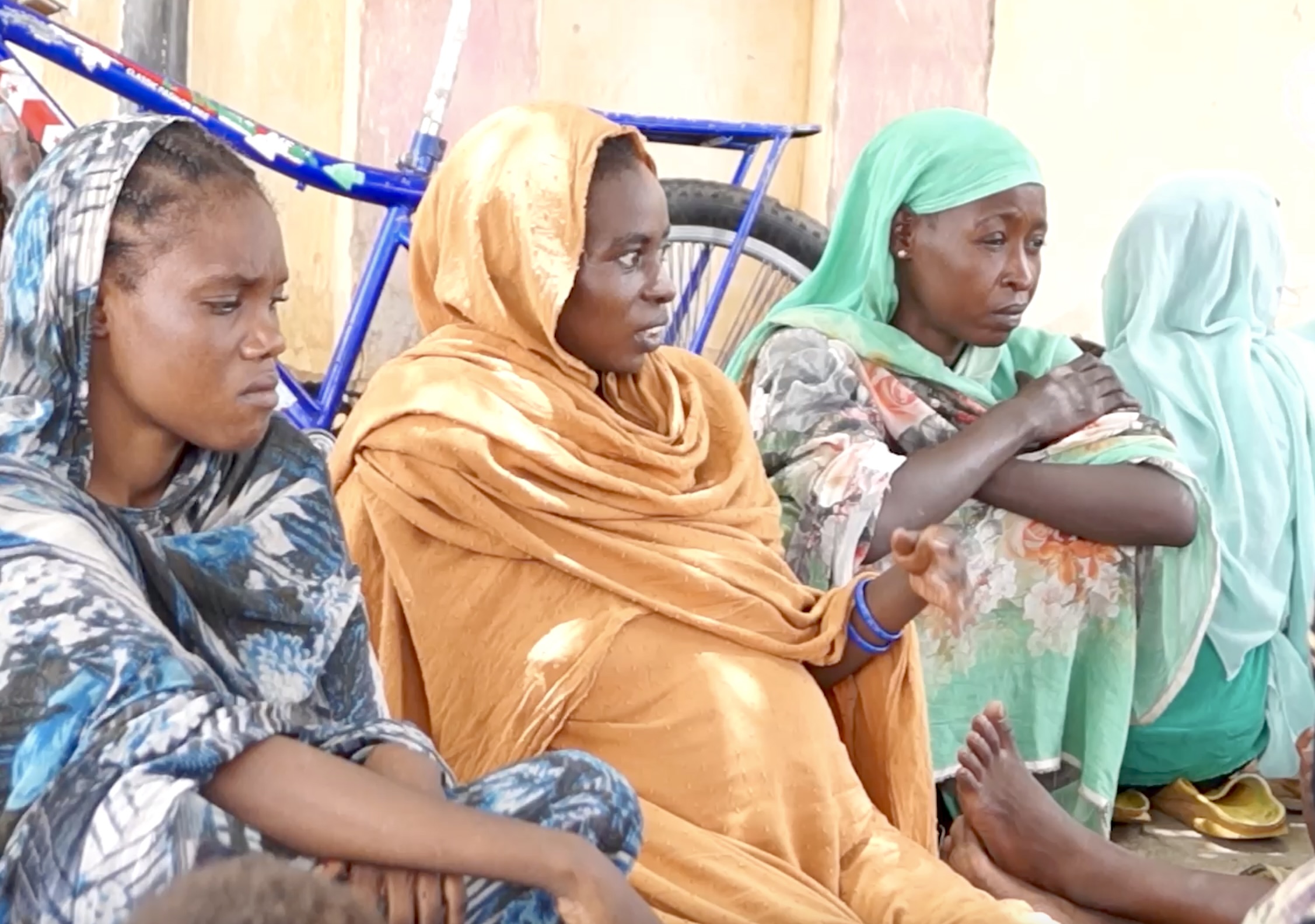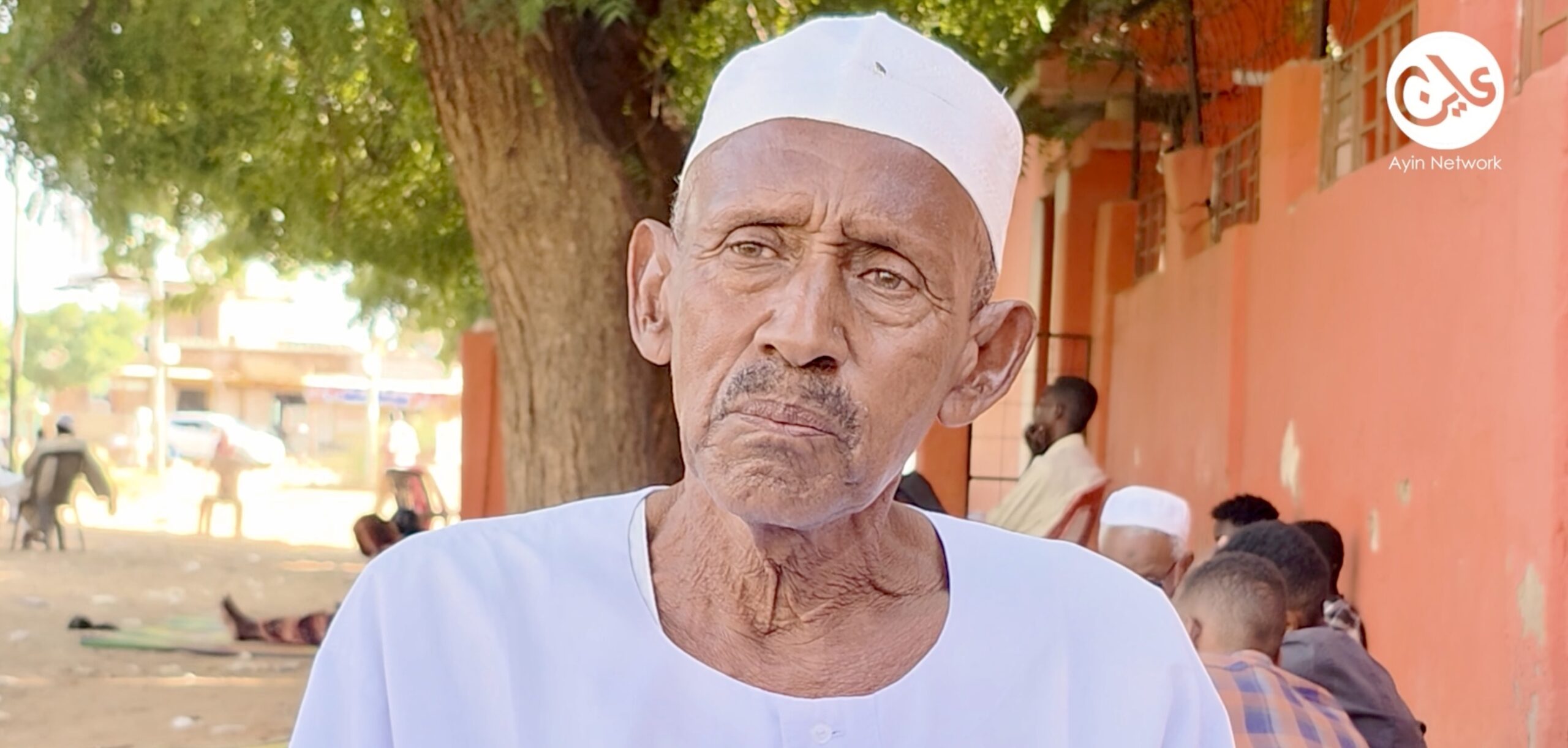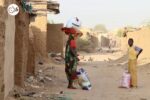Community kitchens: the arteries of life are cut off in El Fasher
18 October 2025
Nearly all civilians trapped in the fighting in El Fasher, North Darfur State, rely on the community kitchens (“takayas”) for their daily survival. But few of these vital kitchens are in operation, local volunteers working at the kitchens told Ayin, due to a lack of funding and the indiscriminate shelling by the paramilitary Rapid Support Forces.
“Closing the free kitchens will be a major disaster for citizens and will bring life in El Fasher to a standstill,” volunteer Sami Muzamil told Ayin. “Thousands of civilians remain trapped in the city.” Muzamil says his community kitchen is still operating amid security and economic challenges, but other kitchens have been compelled to close. There are only 3-5 community kitchens that manage to operate on a daily basis, Muzamil says, despite a growing need to support thousands of the conflict-displaced within the city.
The humanitarian situation in El Fasher has reached an unprecedented level of deterioration. Many food items are now scarce, while the skyrocketing prices of items that are available make it impossible for local citizens to purchase anything. The high market prices, according to local volunteers, have also affected the community kitchens. Preparing a meal for 70 families costs well over 10 million Sudanese pounds (nearly US$3,000), which the community kitchens can hardly afford. “With a broken heart, El Fasher’s kitchen failed today (October 14) to prepare and distribute meals,” said Mohiedin Shawkar via his Facebook page. “The bitter reason is a lack of basic commodities and necessities of life.”
Prices for basic commodities continue to rise throughout the year, says Ali Suleiman, a university professor and head of the Sawaed El Balad Charitable Initiative. When using an online banking app such as “Bankak”, a cash shortage doubles the price. Suleiman, along with an estimated 250,000 others in El Fasher, finds himself trapped in the conflict zone, constantly grappling with escalating prices. A bottle of cooking oil is now roughly US$29 and a kilogram of rice will cost US$53—a price few residents of the war-ravaged El Fasher can afford. Even ambaz, an animal feed made of peanut shells, now costs residents roughly ten dollars, as many have resorted to eating it out of desperation.
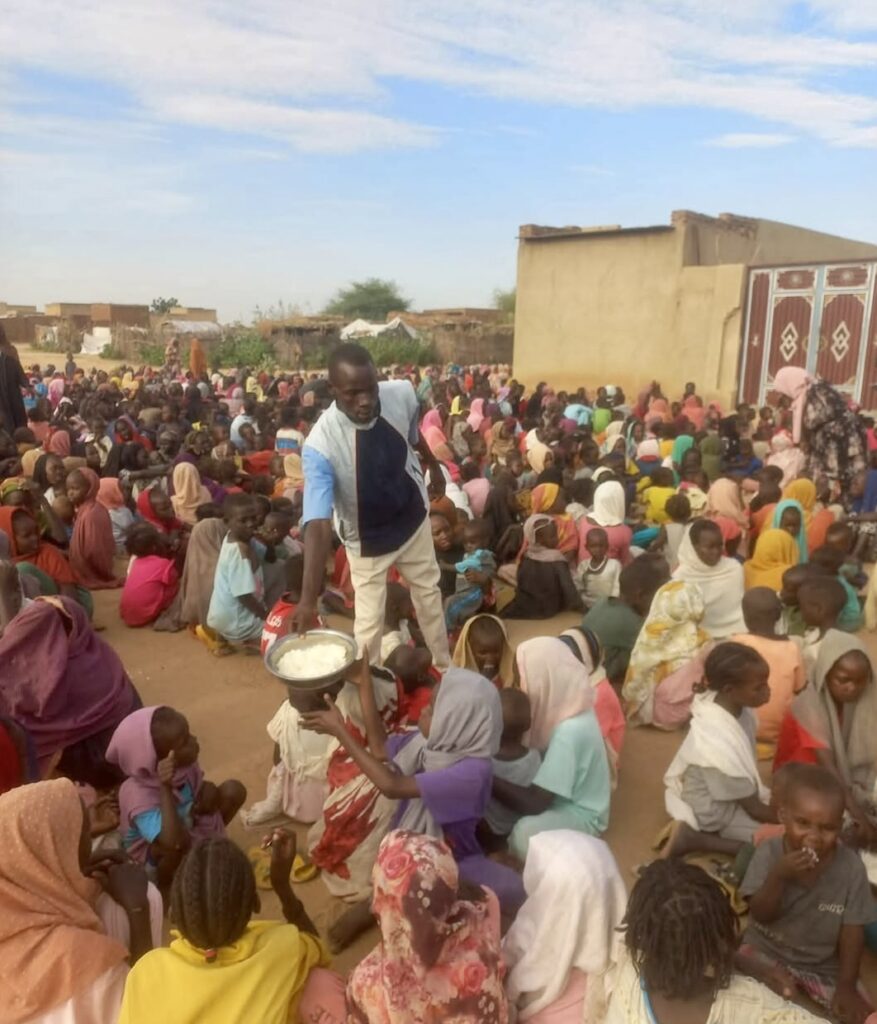
“Kill me gently”
In some cases, even ambaz is unavailable. Residents have resorted to a poor-tasting drink comprising oil extracts from ambaz and sesame that is known locally as “kill me gently”. For most residents trapped in El Fasher, says spokesperson for the displaced, Mohammed Khamis, this drink solution is often the only commodity available.
“There is nothing left to eat. Today all the food is gone,” according to a statement by the El Fasher Resistance Committee, a youth-driven movement that called for a democratic, civilian government before the outbreak of war. “We write and scream and plead, but the words seem to fall into a void.”
While there are fewer community kitchens in operation, the needs for such services in El Fasher are greater than ever. Surrounded on all sides by the Rapid Support Forces (RSF), opportunities to farm are impossible, inducing more and more citizenry to rely on the critical support of the community kitchens. Over recent months, the RSF have built an earthen wall that now completely encircles El Fasher, allowing them to control the flow of people and supplies to and from the city. According to a recent survey, roughly 75% of civilians who fled El Fasher reported that they had very limited access to food while in the city, and 50% said the same about water.
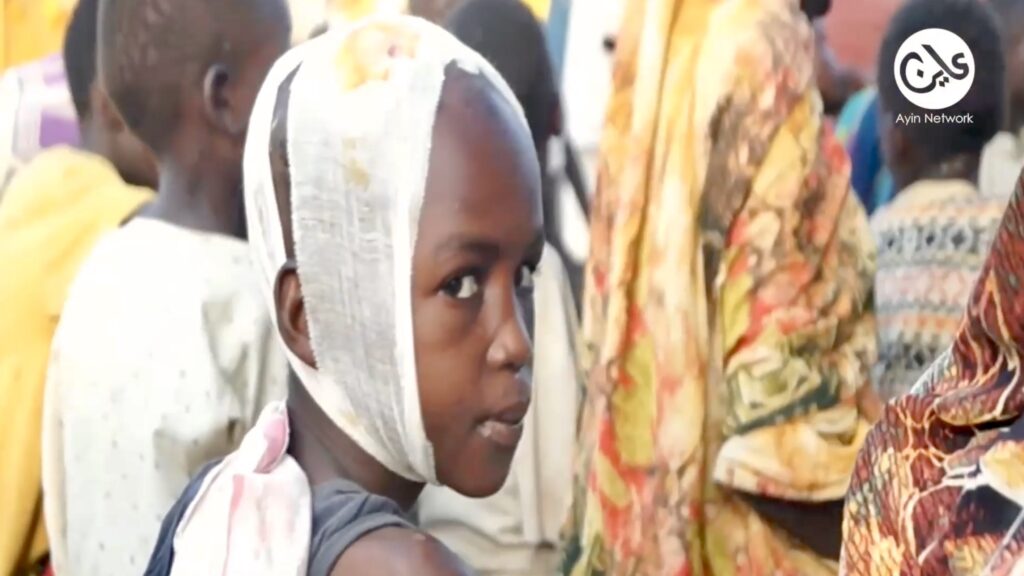
Targeting shelters
El Fasher’s life options have become increasingly limited as military attacks escalate. All markets and shopping centres in the city have closed; the latest is Naivasha Market, which went out of service last month. Local residents attempted to set up a market called Zalat Abu Qurun, but it was shut down after it was targeted by artillery shelling, Suleiman said. “People do not move much due to the shelling – only during quiet periods do you find individuals quickly going to the market and then rushing back to their shelters.” For the most part, El Fasher residents spend their days in underground shelters, besieged by hunger and fear of indiscriminate shelling, Suleiman said. “Takayas and charitable initiatives like the one I lead are facing significant difficulties due to the high cost of living, scarcity of food supplies, and the ongoing bombing, which has now targeted kitchens and shelters,” he added.
Every day, displaced residents in El Fasher take huge risks, leaving their shelters in search of food, volunteers told Ayin, where the chances of being shelled from above or confronted by RSF soldiers on the ground remain high.
Simultaneously, staying in the city’s displacement shelters poses a grave risk. On October 11, the Sudan Doctors Network reported that 57 people had been killed, including 17 children, inside the Al-Arqam Home for the internally displaced at Omdurman Islamic University in El Fasher. The El-Fasher Resistance Committee reported that the shelter’s metal caravans had burnt some of the deceased alive.
Khamis is particularly concerned about 37 orphans who are currently trapped in the Al-Salam shelter and prone to indiscriminate shelling. Khamis and other volunteers attempted to evacuate them but could not find transportation. Hunger and bombing threaten the lives of El Fasher residents, Khamis told Ayin. “Drones fly all day long, and if they see a single person, they bomb them.” The spokesperson for the displaced is calling on the United Nations to provide relief via air drops, as the army air force has done recently. Khamis adds that for those living trapped and under siege within the city with increasingly limited access to food, air drops may be the only immediate solution.




